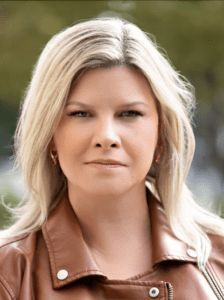A Prime Minister Incapable of Listening

By Lori Turnbull
December 17, 2024
Though the events of Chrystia Freeland’s departure from the federal cabinet were unprecedented in modern Canadian politics, there is a sense of déjà vu to the whole affair.
Prime Minister Justin Trudeau tells Freeland, then minister of finance and deputy prime minister, he no longer wants her to continue in her current job as finance minister but he’ll give her another one. She mulls it over, decides she’s not interested in a demotion, and rebukes him publicly, much to Trudeau’s surprise and embarrassment. She becomes the hero in the story for standing up to the boss, while he appears transactional and tone deaf. Opposition parties use her words against him in their quest to bring him down.
Does this sound familiar? Of course. This is what happened when Prime Minister Trudeau tried a similar approach with former minister of justice Jody Wilson-Raybould. He wanted to move her from justice to Indigenous Services and, instead of going along with his plans, she quit cabinet and told the media her story. The SNC Lavalin affair in 2019 was one of the first moments of catastrophe for the Trudeau government.
The Wilson-Raybould and Freeland departures will be remembered as defining moments in Trudeau’s time as prime minister. Both delivered substantial blows to Trudeau’s brand and legitimacy. Both caused people to doubt Trudeau’s description of himself as a feminist. And, in both cases, Trudeau seemed to be caught off-guard entirely by the fact that the minister in question did not accept his proposal. And therein lies that problem of a considerable weakness that Trudeau has as a leader: he does not listen.
In both cases, Trudeau was at odds with the minister in question over an issue of fundamental importance to her file and to the public. Wilson-Raybould had been told that it was the prime minister’s wish that SNC Lavalin be granted a deferred prosecution agreement (DPA) and, in her capacity as Attorney General of Canada, she was able – and expected – to make that happen. She refused. Trudeau then told her of his intent to shuffle her out of the portfolio, at which point she quit.
Freeland disagreed with the prime minister over how to run the economy. She wanted fiscal prudence so that we are more ready to handle Donald Trump’s tariffs should they come to pass, but Trudeau committed to a GST break and a $250 cheque for workers, which would cost billions. He told her (over Zoom, no less) of his desire to give her a different role as a minister without-portfolio-dealing with Canada-U.S. relations. This would have been a crushing demotion, so she gave that a pass and communicated her decision via public letter on the day she was supposed to give the Fall Economic Statement. The announcement and its timing created a political earthquake and it’s not clear whether Trudeau’s leadership will survive.
Neither Wilson-Raybould nor Freeland could get through to him and both ended up making a personal and professional sacrifice by leaving a position they loved.
Both ministers, experienced professionals recruited as star candidates and whose credentials far outshine his own, tried to tell him something about how he was governing and why it would not work. Both were making arguments about sound public policy and the public good and were encouraging him to look beyond politics to see the bigger picture.
Neither Wilson-Raybould nor Freeland could get through to him and both ended up making a personal and professional sacrifice by leaving the federal cabinet because they no longer trusted his leadership and decision-making. Other former Trudeau ministers who fit the same description, like Bill Morneau and Catherine McKenna just to name two, left cabinet and politics entirely rather than try to stick it out as backbenchers. But they had the same rationale: Trudeau does not listen, not even to the people he claimed to recruit because of their expertise. He puts politics over policy every time.
In his memoir, former finance minister Bill Morneau writes: “My job of providing counsel and direction where fiscal matters were concerned had deteriorated into serving as something between a figurehead and a rubber stamp.”
Morneau and other former ministers have spoken to media about how difficult it is to get a one-on-one meeting with Trudeau. His staff are always there. This makes it difficult for ministers to build trust and a rapport with him. And when caucus members called for a meeting this past summer to discuss the implications of the by-election loss in a formerly safe seat in Toronto, he refused. This all suggests that Trudeau does not see the value in listening to people – not even his political colleagues. This has caused problems for him, including defections from people who had been loyalists.
Now Trudeau is in a true crisis: his polling numbers are a disaster, cabinet ministers are leaving, increasing numbers of caucus members want him to quit, and his closest ally and most senior minister has walked away. His seemingly poor listening skills make it possible for him to keep going as prime minister because he does not internalize the data and circumstances around him. This type of “leadership” has no democratic legitimacy. It is obvious to everyone, except perhaps for Trudeau himself, that his time as prime minister has come to an end. Perhaps some quiet time over the holidays will allow that message to be heard.
Policy Columnist Lori Turnbull is a professor in the Faculty of Management at Dalhousie University.
